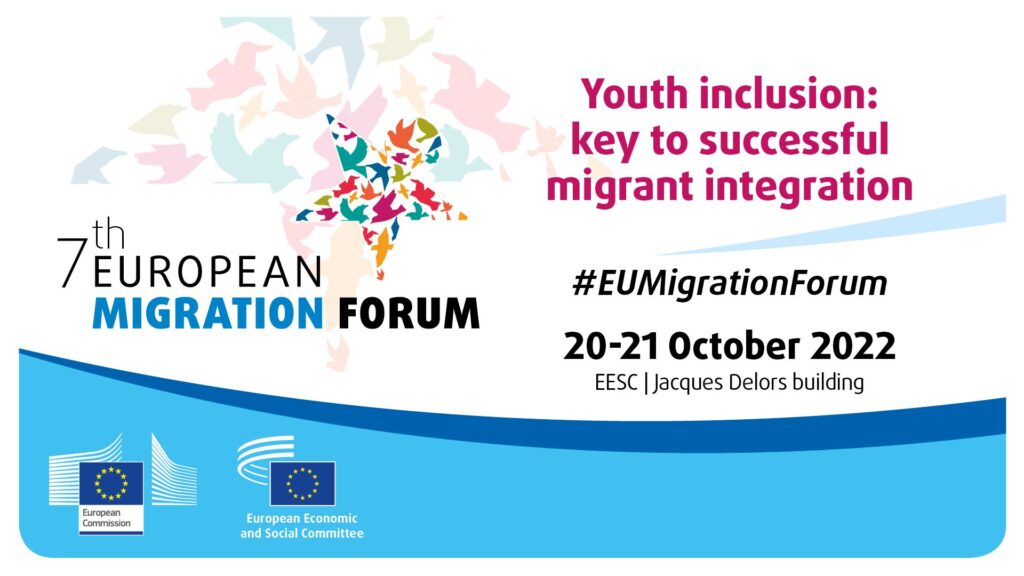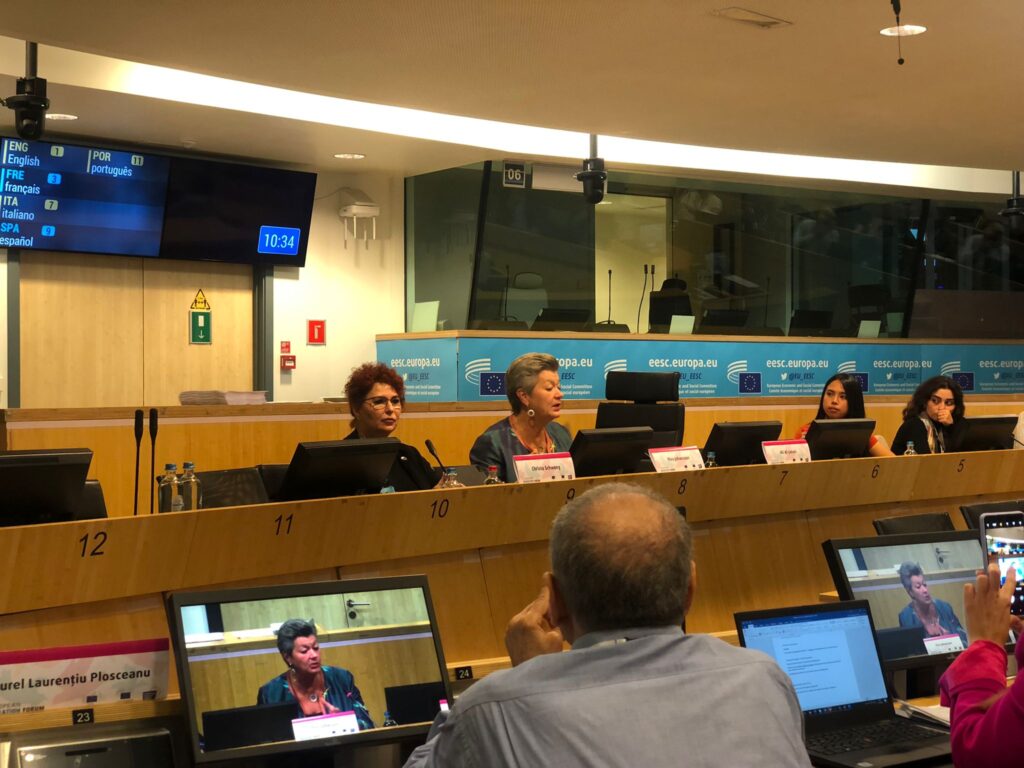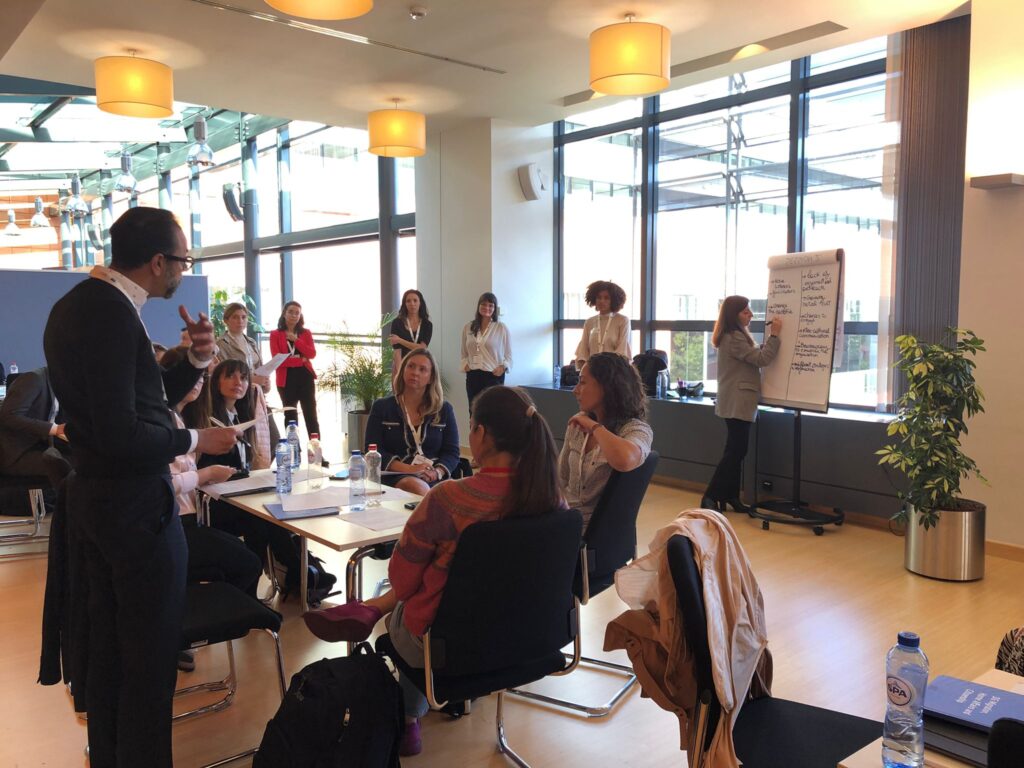
On 20 and 21 October 2022, Inter Alia attended the seventh edition of the European Migration Forum (EMF). EMF is a platform for dialogue between civil society organisations and EU institutions to exchange views on migration policies. It is jointly organised by the European Commission and the European Economic and Social Committee.

As 2022 is the European Year of Youth, the theme of the EMF was Youth inclusion: key to successful migrant integration. Special attention was given to the inclusion of migrant and refugee youth in political and civic affairs as well as their access to education as key to social inclusion. More than 120 civil society organisations, including youth organisations, took part along with representatives from local and regional authorities, and EU institutions. Discussions included several topics such as young migrants’ access to education and training, and specific challenges and measures regarding the integration of young refugees.

Participatory workshops highlighted the importance of CSOs in listening to young refugees, migrants and young people with migrant backgrounds, and in encouraging their engagement in local, national and European policy-making processes. In the workshop on the participation of young migrants in the design, implementation and evaluation of EU policies, Inter Alia contributed to the discussion with its positions: “On the one hand, migrant youth must be accountable for the identification of problems that affect their social integration, and for the impact assessment of the policies related to that. On the other hand, as CSOs, we must be the bridge between migrant youth and decision-makers: meaning, we have the duty to build safe spaces where young people with refugee or migrant backgrounds feel comfortable sharing their needs, as well as to contribute with their opinions and initiatives”.

CSOs and young leaders had the opportunity to exchange with political speakers, including the DG HOME Commissioner, Ylva Johansson, and the EESC President, Christa Schweng. The EU efforts and achievements in integrating Ukrainian refugees in the past months were at the centre of these speakers’ interventions. Nevertheless, less attention was paid to the other – and equally important – refugees coming from Syria, Afghanistan, Yemen, and so on. Even worse, Commissioner Johansson stated, “most people who come by boats and not from war-torn countries, are economic migrants. Those who claim to be refugees must prove so, according to each country’s practices. […] This is why we need legal pathways to allow migrants who want to work or study to come without seeking asylum when they are not entitled. We need migrants and we need it more, to welcome them to work and study”. Our question, then, is: When will the EU abandon the double standards with which it treats migrants, asylum seekers, and refugees, differentiating their reception on the basis of their country of origin, instead of treating everyone equally and respecting their human dignity and rights?
More information about this year’s European Migration Forum can be found here.




